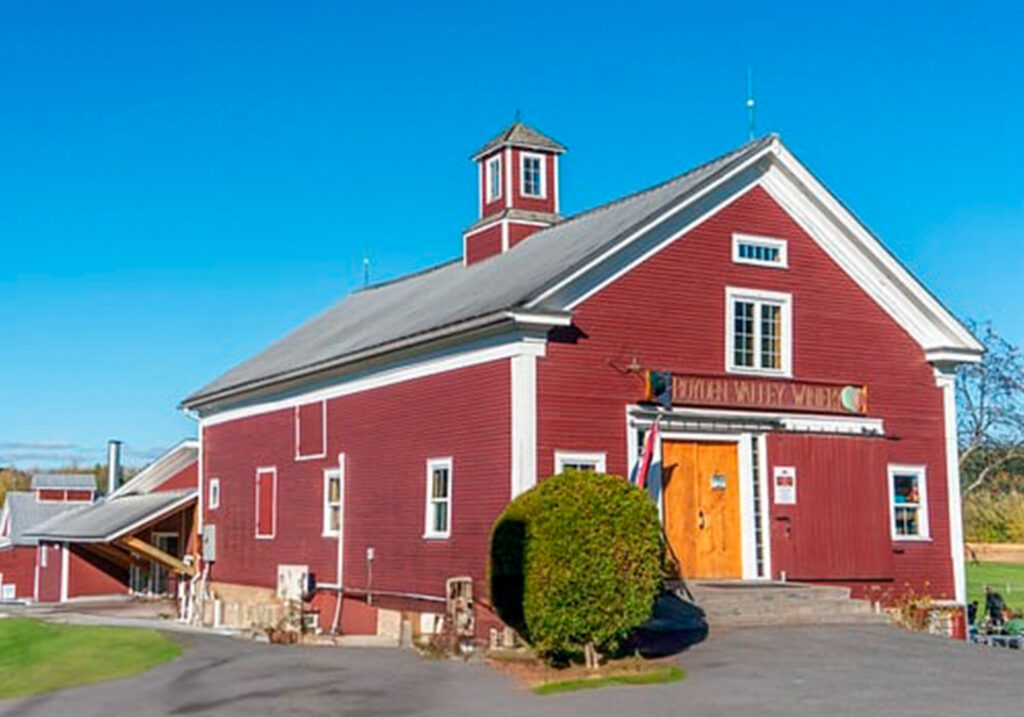Have you ever wondered what the difference is between using steel for building and using traditional materials? In the past few decades, we have seen an abundance in steel structures everywhere, from residential structures to office buildings. But, do you know that it is also used for farm building? This is because when it comes to constructing farm buildings, the choice of material can make all the difference in durability, functionality, and long-term value.
Among the many options available, steel stands out as a superior choice for agricultural structures. From barns and silos to storage sheds and equipment housing, steel buildings provide unmatched benefits that cater specifically to the needs of farmers and agricultural operations. In this article, we will explore the reasons why steel is an ideal material for farm buildings and how it can enhance your agricultural infrastructure.
Durability That Stands the Test of Time
One of the most compelling reasons to choose steel for your farm building is its unparalleled durability. Steel is renowned for its incredible strength and ability to withstand external forces, making it one of the most reliable materials for construction. Whether it’s housing livestock, storing equipment, or protecting crops, steel provides a sturdy and dependable framework that can endure the demands of agricultural operations. Its ability to handle stress without bending, cracking, or breaking ensures that farm buildings constructed from steel remain in excellent condition for decades, even under challenging circumstances.
This durability is not only advantageous for structural integrity but also for long-term financial savings. Unlike materials such as wood or concrete, steel is resistant to many forms of degradation that would otherwise require constant repairs or replacements. The long lifespan of steel farm buildings translates to reduced maintenance costs and greater peace of mind for farmers. By investing in steel, you are securing a building that will serve your agricultural needs for the long haul, no matter the environmental or operational challenges.
Resilience Against Weather
Farm buildings must endure a wide range of weather conditions, from heavy rains and snowstorms to high winds and hail. Steel structures are uniquely equipped to handle these extremes, offering unmatched resilience and protection. Unlike wood, which can swell, warp, or rot due to prolonged exposure to moisture, steel retains its shape and strength regardless of the weather. Similarly, steel is far less susceptible to the cracking and deterioration that can plague concrete structures during temperature fluctuations. This ability to resist weather-related damage ensures that steel farm buildings maintain their functionality and safety year-round.
In addition to their natural strength, many steel farm buildings come with protective coatings that enhance their weather resistance. These coatings, such as galvanization, provide an added layer of defense against corrosion and rust, ensuring that the structure remains unaffected even in humid or coastal environments. For farmers, this means fewer worries about repairs or structural failures caused by the elements, allowing them to focus on their operations without interruptions or costly downtimes.
Resistance to Pests and Rot
One of the most significant challenges with traditional wooden farm structures is their vulnerability to pests like termites and rodents. These pests can cause extensive damage, weakening the structure over time and leading to expensive repairs. Steel, however, is entirely impervious to such infestations, making it an ideal choice for farm buildings. By eliminating the risk of pest damage, steel provides a level of security that wooden buildings simply cannot match. Farmers can rest assured that their steel structures will remain intact and functional without the constant threat of pests compromising the building’s integrity.
Beyond pest resistance, steel also eliminates concerns about rot and decay. Wooden buildings, when exposed to moisture or damp environments, can develop mold, mildew, and structural rot, all of which can weaken the building and pose health risks. Steel, on the other hand, does not deteriorate in the same way. Its resistance to biological decay significantly reduces maintenance needs and ensures that the building retains its strength and appearance over time. This longevity makes steel a more cost-effective and reliable material for agricultural settings, where durability and resilience are paramount.
Cost-Effectiveness Over the Long Term
While the initial cost of a steel farm building may seem higher than other materials, it proves to be more cost-effective in the long run.
Lower Maintenance Costs
Steel buildings require minimal upkeep compared to their wooden or concrete counterparts. Regular inspections and occasional cleaning are often sufficient to keep the structure in excellent condition. This translates to significant savings on repairs and maintenance over the years.
Energy Efficiency
Modern steel buildings can be equipped with advanced insulation and reflective coatings, making them highly energy-efficient. Proper insulation helps regulate indoor temperatures, reducing the need for heating or cooling systems. For farmers storing temperature-sensitive items like crops or dairy products, this energy efficiency can result in substantial cost savings.
Customizable Design Options
Steel offers unparalleled design flexibility, allowing farmers to create buildings that meet their specific needs.
Adaptable Layouts
Whether you need a barn for livestock, a storage facility for equipment, or a multi-purpose structure, steel can accommodate a wide range of layouts. The absence of load-bearing walls means that steel buildings can feature open interiors, providing maximum usable space and easy adaptability.
Scalable and Expandable
Farms often evolve, requiring additional space for new equipment, increased storage, or expanded livestock operations. Steel buildings are easy to modify and expand, ensuring that your infrastructure can grow alongside your agricultural needs.
Eco-Friendly and Sustainable
Sustainability is becoming increasingly important in modern agriculture, and steel is one of the most eco-friendly building materials available.
Recyclability
Steel is 100% recyclable and can be reused indefinitely without losing its properties. When a steel building reaches the end of its lifespan, its materials can be repurposed, reducing waste and environmental impact.
Energy-Efficient Manufacturing
Advancements in steel production have reduced the energy required to manufacture it. Many steel products now contain a significant percentage of recycled content, further contributing to their sustainability. Choosing steel for your farm building aligns with eco-conscious practices and helps reduce your carbon footprint.
Fire Resistance for Enhanced Safety
Farms are often filled with flammable materials, from hay and straw to fuel and fertilizers. Fire safety is, therefore, a critical consideration in farm building construction.
Non-Combustible Material
Unlike wood, steel does not burn, making it a much safer choice for agricultural structures. Steel buildings can help prevent the rapid spread of fires, potentially minimizing damage and loss.
Insurance Benefits
The fire-resistant nature of steel can also lead to lower insurance premiums. Many insurance providers recognize the reduced fire risk associated with steel buildings and offer discounts on coverage for such structures.
Protection Against Agricultural Chemicals
Farmers often use chemicals such as pesticides, herbicides, and fertilizers that can cause corrosion or degradation in certain building materials. Steel buildings, especially those treated with protective coatings, are resistant to chemical damage.
Corrosion-Resistant Coatings
Galvanized steel or steel treated with special coatings can withstand exposure to corrosive substances commonly found in agricultural settings. This makes steel a durable and low-maintenance option for farms where chemical use is prevalent.
Longevity in Harsh Environments
Even in challenging environments, such as those with high humidity or salt exposure, steel buildings maintain their integrity. This durability ensures that your investment remains protected for decades.
Versatile Applications for Farm Needs
Steel buildings are suitable for a wide variety of agricultural applications, making them a versatile choice for farmers.
Livestock Housing
Steel barns can be customized to provide comfortable and hygienic housing for livestock. Proper ventilation, insulation, and durable interiors create an environment that promotes animal health and productivity.
Crop and Equipment Storage
From grain silos to machinery sheds, steel buildings provide secure storage for valuable assets. Their resistance to moisture and pests ensures that crops remain protected, and equipment stays in optimal condition.
Workshops and Offices
Modern farms often require dedicated spaces for administrative tasks or mechanical work. Steel buildings can be designed to include workshops, offices, and even employee break rooms, enhancing the functionality of the farm.
Ease of Construction
The efficiency of steel construction is another major advantage, particularly for farmers who need functional buildings as quickly as possible.
Pre-Engineered Kits
Many steel buildings are available as pre-engineered kits, which include all the necessary components for assembly. These kits simplify the construction process, reducing labor costs and project timelines.
Minimal Downtime
The speed of steel construction minimizes disruptions to farm operations. Unlike traditional materials, which may require lengthy curing or installation processes, steel buildings can be erected quickly and efficiently.
A Long-Term Investment for Farmers
Choosing steel for your farm building is more than just a practical decision; it’s a long-term investment in the success and sustainability of your agricultural operation.
Value Retention
Steel buildings retain their value over time due to their durability and low maintenance requirements. Should you decide to sell or repurpose your farm, a well-maintained steel building can add significant value to the property.
Enhanced Productivity
By providing reliable, functional, and secure spaces, steel buildings contribute to overall farm productivity. Whether it’s protecting your livestock, safeguarding your crops, or streamlining your operations, steel structures help ensure that your farm runs smoothly.
Conclusion
By investing in a steel building, you are not just constructing a structure; you are laying the foundation for a more efficient, productive, and environmentally friendly farm. Steel provides the durability and flexibility needed to support modern agricultural operations. Choose steel for your farm building and reap the benefits of a smart, long-term investment.

